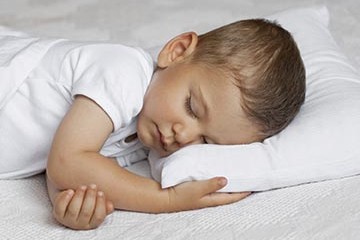Sleep is an essential part of your growing child’s health. When it comes to making sure your children are getting the proper amount of Z’s, there are some guidelines you can follow. Infants, on average, sleep 10 to 12 hours per night. Newborns and adolescents typically sleep eight to 10 hours. The recommended amount is about nine hours a night for teenagers, says Dr. Harvey Triebwasser.
DON’T SKIMP ON SLEEP
When kids don’t get enough sleep, they will experience a lag, both physically and mentally, and often appear cranky. Their school performance and immune systems also may suffer. “People get sick when they don’t sleep as much,” says Dr. Triebwasser. “It’s hard to learn when your brain is not well-rested.” Like washing your hands to avoid germs, children need to develop proper sleep “hygiene.”
Parents should also be aware of sleep disorders like restless leg syndrome, when people move their legs excessively or sleep apnea, which happens when you have one or more pauses in breathing while you sleep, lasting from a few seconds to minutes. If your child experiences any abnormal sleeping patterns, discuss it with our physician.
POWERING DOWN
For teenagers, the biggest interference with turning in “on time” is a lot of homework, video games, texting and social media, says Dr. Triebwasser. Since common sleep issues such as difficulty falling asleep or staying a sleep can result from poor sleep hygiene, teens should take several precautions:
- Go to sleep at a reasonable time
- Avoid late-night television
- and snacks
- Try not to over stimulate their brains right before bedtime
How can parents with younger children enforce healthy sleep habits?
- Say good night, turn off the light, and leave the room
- Put children to bed awake
- Make naptime part of a routine
FAST FACTS
- Hours of sleep per day that preschoolers need: 12
- Hours of shut-eye teens need per night: 9
- Minutes of quiet time suggested before bed: 30


















